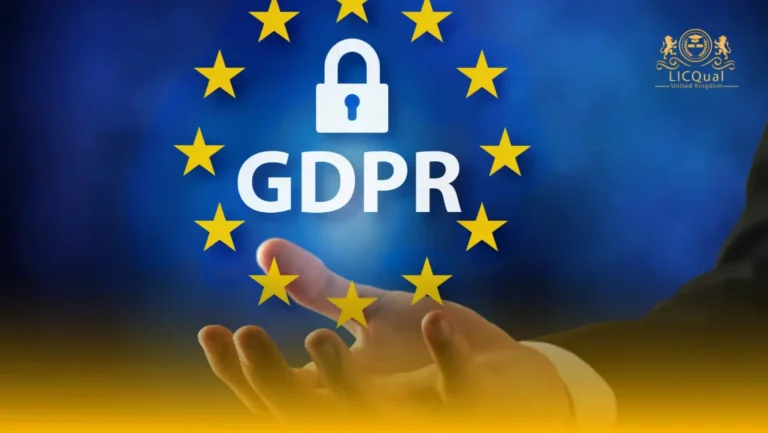Position yourself as a leader in the surveillance and security industry with the LICQual Level 3 Diploma in CCTV Security—an advanced qualification tailored for professionals aiming to specialize in high-level CCTV operations and security management.
As threats to public and private safety become increasingly complex, organizations worldwide are seeking highly trained CCTV experts who can oversee critical surveillance operations, manage teams, and ensure full legal and regulatory compliance.
The LICQual Level 3 Diploma in CCTV Security is designed for individuals who already possess intermediate knowledge of CCTV systems and want to master advanced surveillance techniques, risk management strategies, and operational planning.
This diploma is more than just a technical course—it’s a professional development pathway that strengthens your ability to lead, supervise, and innovate within the security sector. With global recognition and practical applications across industries, this course sets you apart as a trusted and qualified security specialist ready for high-responsibility roles.
The LICQual Level 3 Diploma in CCTV Security delivers an in-depth exploration of advanced surveillance operations, focusing on both technical mastery and managerial competence.
Learners will gain expertise in topics such as CCTV system architecture, network configuration, digital video recording and storage, cybersecurity protocols, remote surveillance infrastructure, and the integration of AI-powered analytics for intelligent monitoring.
The course also covers essential leadership and strategic skills, including security team supervision, incident response planning, threat assessment methodologies, compliance with international security standards, and liaising with legal and emergency authorities.
Learners will understand how to audit CCTV systems for efficiency, implement data protection strategies, and design surveillance protocols that align with ethical and legal guidelines.
Delivered through flexible learning formats and supported by expert tutors with industry experience, this qualification equips you with real-world skills and a strong professional credential that adds significant value to your career.
By completing the LICQual Level 3 Diploma in CCTV Security, you become a critical asset in the fight against crime, fraud, and security breaches—ready to protect people, property, and data in any environment.
Course Overview
Qualification Title
LICQual Level 3 Diploma in CCTV Security
Total Units
6
Total Credits
24
GLH
60
Qualification #
LICQ2200368
Qualification Specification
To enrol in the LICQual Level 3 Diploma in CCTV Security, candidates must meet the following entry requirements:
- Educational Requirements: While no formal qualifications are required, a basic understanding of English and mathematics is beneficial.
- Experience: This course is open to both beginners and professionals. If you’re new to the security industry, the course provides a structured learning approach to build your skills from the ground up. While not mandatory, individuals with prior experience in security, law enforcement, or surveillance may find the course particularly useful for career advancement.
- English Language Proficiency: Since the course involves technical concepts and legal aspects, a good command of written and spoken English is recommended.
- Age Requirement: Candidates must be at least 18 years of age at the time of enrolment.
|
Qualification# |
Unit Title |
Credits |
GLH |
|---|---|---|---|
|
LICQ2200368-1 |
Comprehensive CCTV System Design and Management |
10 |
40 |
|
LICQ2200368-2 |
Advanced AI and Facial Recognition in CCTV Security |
10 |
40 |
|
LICQ2200368-3 |
Legal Frameworks and International Security Regulations |
10 |
40 |
|
LICQ2200368-4 |
Risk Assessment and Security Strategy Development |
10 |
40 |
|
LICQ2200368-5 |
Emergency Response Planning and Crisis Management |
10 |
40 |
|
LICQ2200368-6 |
Leadership, Training, and Professional Development in CCTV Security |
10 |
40 |
By the end of this course, learners will be able to:
Comprehensive CCTV System Design and Management
- Understand the core components of a CCTV system, including cameras, recording devices, and monitoring software.
- Learn how to design, install, and configure an efficient and effective surveillance system.
- Develop the ability to assess and optimize CCTV placement for maximum coverage and security effectiveness.
- Gain knowledge of maintenance, troubleshooting, and upgrading CCTV systems.
Advanced AI and Facial Recognition in CCTV Security
- Explore the latest advancements in AI-driven security systems and facial recognition technology.
- Understand the ethical and legal implications of AI surveillance in different sectors.
- Learn how to analyze AI-generated security data for crime prevention and threat detection.
- Gain hands-on experience in configuring and managing AI-powered CCTV analytics.
Legal Frameworks and International Security Regulations
- Understand global and regional laws governing CCTV surveillance and data privacy.
- Learn about GDPR, human rights considerations, and compliance in CCTV operations.
- Develop skills in writing security policies that align with legal standards.
- Gain insight into legal responsibilities, including evidence collection and admissibility in court.
Risk Assessment and Security Strategy Development
- Learn how to identify potential security threats and vulnerabilities using CCTV surveillance.
- Develop risk assessment methodologies tailored to different environments (corporate, public, residential).
- Create and implement effective security strategies to mitigate risks.
- Understand the role of CCTV in proactive threat detection and response planning.
Emergency Response Planning and Crisis Management
- Develop a structured approach to handling security breaches, emergencies, and crises.
- Learn how to coordinate with emergency services using CCTV surveillance insights.
- Understand evacuation procedures, communication strategies, and real-time incident management.
- Gain skills in post-incident reporting, evaluation, and security enhancements.
Leadership, Training, and Professional Development in CCTV Security
- Learn key leadership skills for managing a security team in a CCTV control room environment.
- Develop strategies for training personnel in effective CCTV monitoring and response.
- Understand career progression opportunities in CCTV security and professional development pathways.
- Enhance decision-making, communication, and problem-solving skills in a security leadership role.
This diploma is ideal for:
- Individuals looking to start a career in CCTV security and surveillance
- Security professionals who want to upgrade their skills and advance in their careers
- Law enforcement officers seeking specialized knowledge in CCTV operations
- Business owners and managers who use CCTV for workplace security and monitoring
- Security consultants and risk assessors needing in-depth expertise in surveillance technology
- IT and technical professionals interested in CCTV system installation and management
- Emergency response personnel who require CCTV knowledge for crisis management
- Anyone passionate about security, crime prevention, and public safety looking for a structured learning path
Assessment and Verification
All units within this qualification are subject to internal assessment by the approved centre and external verification by LICQual. The qualification follows a criterion-referenced assessment approach, ensuring that learners meet all specified learning outcomes.
To achieve a ‘Pass’ in any unit, learners must provide valid, sufficient, and authentic evidence demonstrating their attainment of all learning outcomes and compliance with the prescribed assessment criteria. The Assessor is responsible for evaluating the evidence and determining whether the learner has successfully met the required standards.
Assessors must maintain a clear and comprehensive audit trail, documenting the basis for their assessment decisions to ensure transparency, consistency, and compliance with quality assurance requirements.







